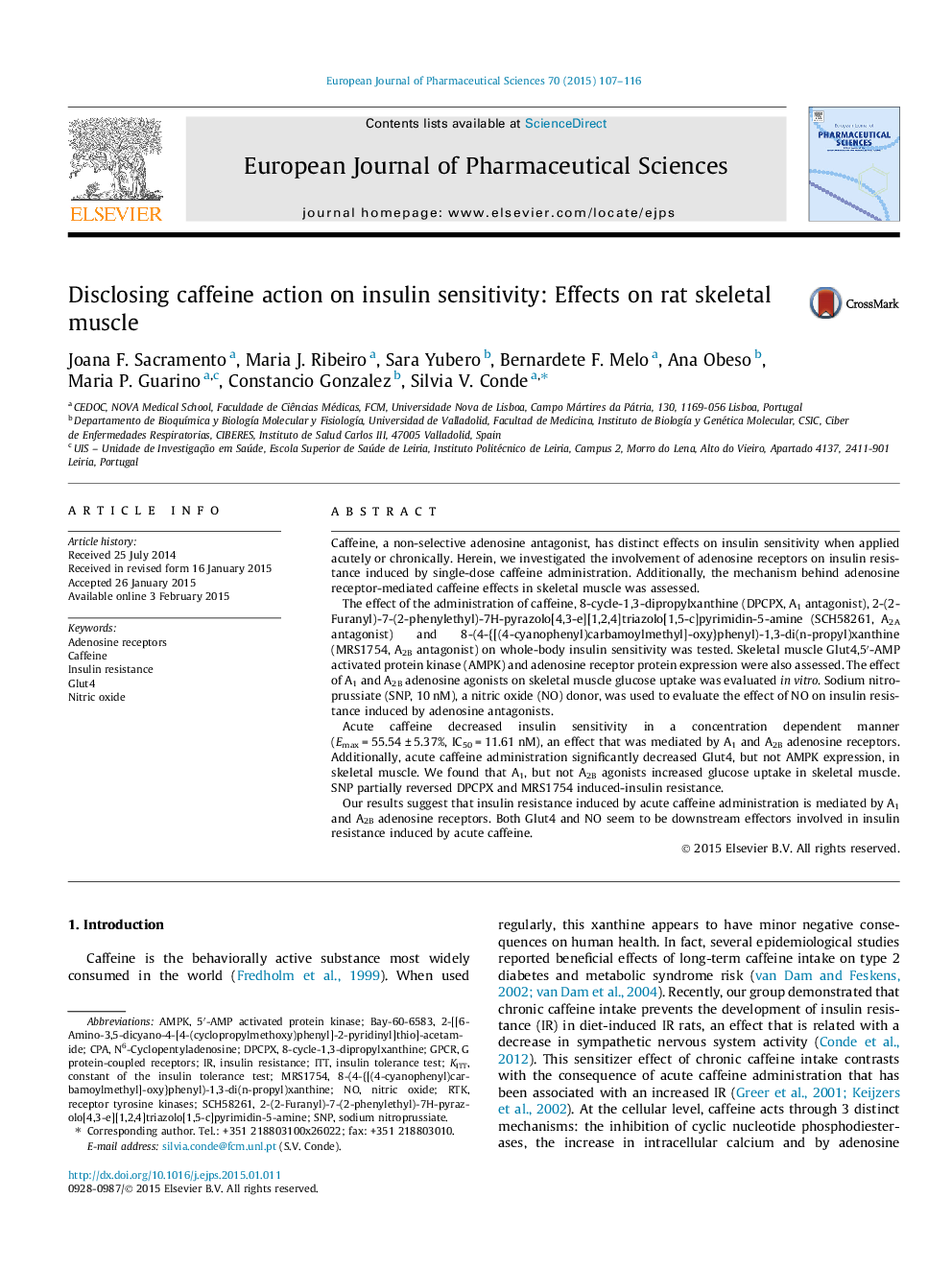| Article ID | Journal | Published Year | Pages | File Type |
|---|---|---|---|---|
| 2480332 | European Journal of Pharmaceutical Sciences | 2015 | 10 Pages |
Caffeine, a non-selective adenosine antagonist, has distinct effects on insulin sensitivity when applied acutely or chronically. Herein, we investigated the involvement of adenosine receptors on insulin resistance induced by single-dose caffeine administration. Additionally, the mechanism behind adenosine receptor-mediated caffeine effects in skeletal muscle was assessed.The effect of the administration of caffeine, 8-cycle-1,3-dipropylxanthine (DPCPX, A1 antagonist), 2-(2-Furanyl)-7-(2-phenylethyl)-7H-pyrazolo[4,3-e][1,2,4]triazolo[1,5-c]pyrimidin-5-amine (SCH58261, A2A antagonist) and 8-(4-{[(4-cyanophenyl)carbamoylmethyl]-oxy}phenyl)-1,3-di(n-propyl)xanthine (MRS1754, A2B antagonist) on whole-body insulin sensitivity was tested. Skeletal muscle Glut4,5′-AMP activated protein kinase (AMPK) and adenosine receptor protein expression were also assessed. The effect of A1 and A2B adenosine agonists on skeletal muscle glucose uptake was evaluated in vitro. Sodium nitroprussiate (SNP, 10 nM), a nitric oxide (NO) donor, was used to evaluate the effect of NO on insulin resistance induced by adenosine antagonists.Acute caffeine decreased insulin sensitivity in a concentration dependent manner (Emax = 55.54 ± 5.37%, IC50 = 11.61 nM), an effect that was mediated by A1 and A2B adenosine receptors. Additionally, acute caffeine administration significantly decreased Glut4, but not AMPK expression, in skeletal muscle. We found that A1, but not A2B agonists increased glucose uptake in skeletal muscle. SNP partially reversed DPCPX and MRS1754 induced-insulin resistance.Our results suggest that insulin resistance induced by acute caffeine administration is mediated by A1 and A2B adenosine receptors. Both Glut4 and NO seem to be downstream effectors involved in insulin resistance induced by acute caffeine.
Graphical abstractFigure optionsDownload full-size imageDownload high-quality image (80 K)Download as PowerPoint slide
